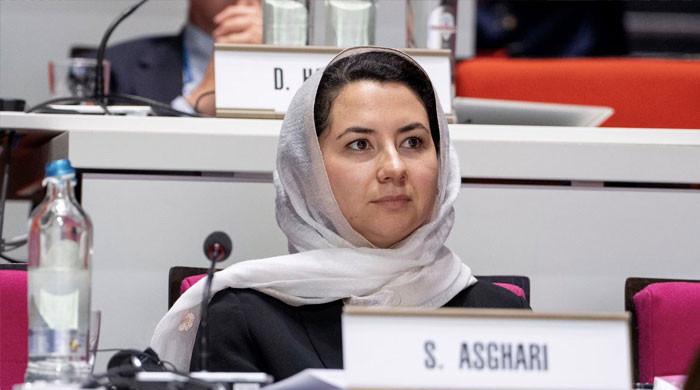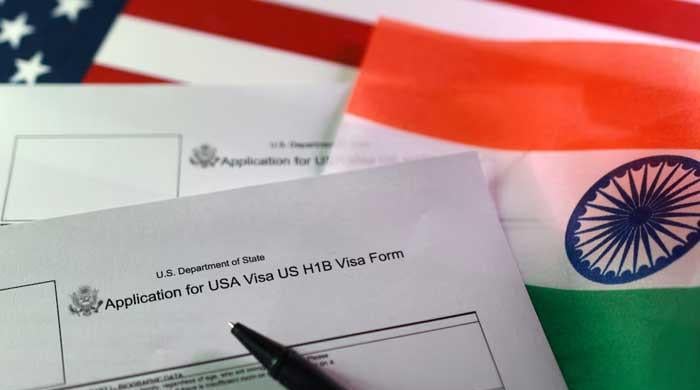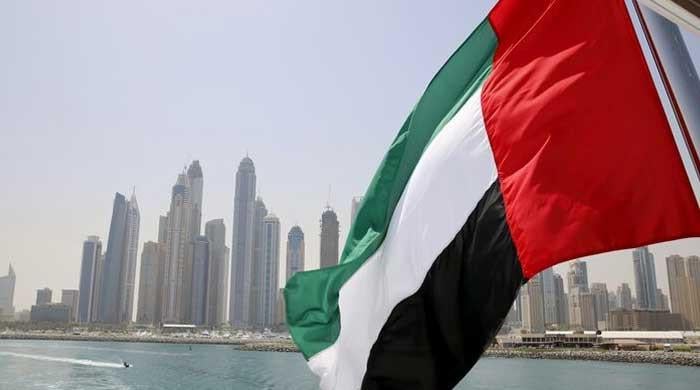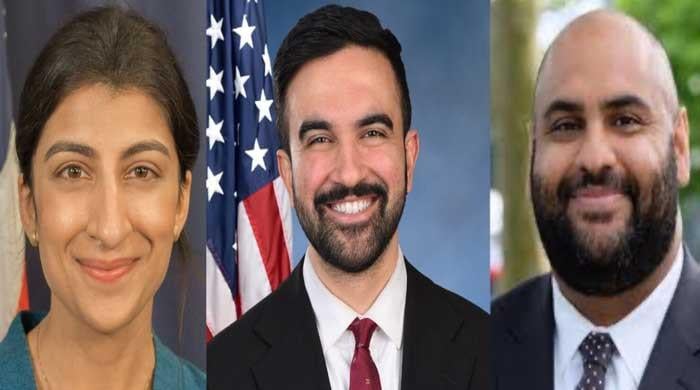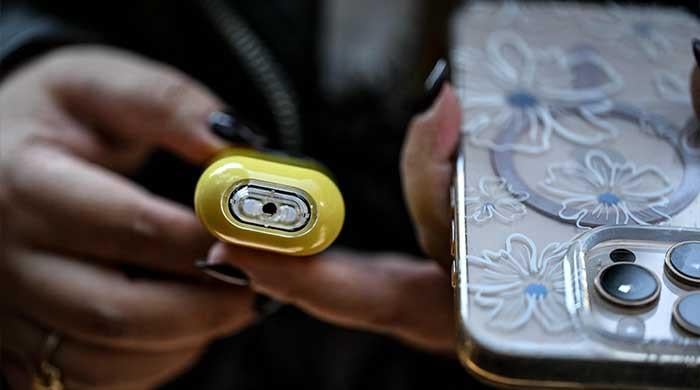Myanmar demonstrators continue anti-coup protest as UN urged to hear 'pleas'
Security forces have initiated an increasingly brutal crackdown on demonstrators, killing more than 50 people since the coup
March 06, 2021
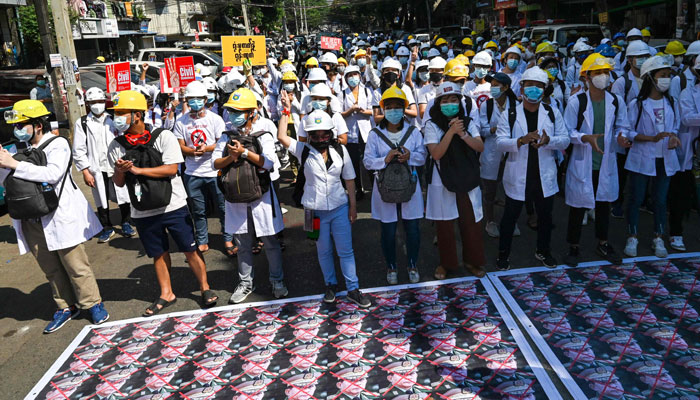
- Anti-coup demonstrators continue to rally, determined that their "revolution must win".
- The country's vital sectors have been crippled by an ongoing "Civil Disobedience Movement".
- State-run media has announced that if civil servants continue to boycott work, "they will be fired" with immediate effect from March 8.
YANGON: Anti-coup demonstrators took to the streets of Myanmar Saturday, a day after a United Nations envoy urged the Security Council to hear the nation's "desperate pleas" and take swift action to restore democracy.
The country has been in turmoil since a February 1 coup ousted civilian leader Aung San Suu Kyi from power, triggering a massive uprising from hundreds of thousands opposed to the new junta.
Security forces have in response initiated an increasingly brutal crackdown on demonstrators, killing more than 50 people since the coup.
But protesters rallied again on Saturday, from the dusty roads of northern Lashio — where young protesters stared down police behind homemade shields — to central Loikaw city in view of Myanmar's eastern mountains.
"Our revolution must win," chanted protesters in Loikaw, who included civil servants such as teachers in their green and white uniforms.
The country's vital sectors have been crippled by an ongoing "Civil Disobedience Movement" — a campaign urging civil servants to boycott working under a military regime.
The impact has been felt at every level of the national infrastructure, with shuttered hospitals, empty ministry offices, and banks unable to operate.
On Saturday, state-run media announced that if civil servants continued to boycott work, "they will be fired" with immediate effect from March 8.
But protesters in Myanmar continued to defy authorities, gathering across commercial hub Yangon as police deployed tear gas, stun grenades and rubber bullets to disperse them.
In Tamwe township, soldiers prowled empty streets looking for protesters — even using a slingshot to shoot projectiles at residential buildings.
Activist Maung Saungkha said the movement would persist — even as security forces continued to step up enforcement tactics — as many remember the repression under the previous junta.
"In our past revolutions, we never won... this time we must fight to win," he told AFP.
"We must fight together with the younger generation to get victory."
'The repression must stop'
Myanmar's ruling generals have shown no sign of heeding calls for restraint despite mounting international pressure, including targeted sanctions by Western powers.
The United Nations Security Council on Friday heard from UN special envoy on Myanmar Christine Schraner Burgener, who warned against any moves to grant legitimacy to the junta.
"The hope they have placed in the United Nations and its membership is waning and I have heard directly the desperate pleas — from mothers, students and the elderly," she said.
"Your unity is needed more than ever on Myanmar... The repression must stop."
But diplomats said the Security Council was unlikely to approve any international measures against the junta, and the session ended without any statement.
Condemnation of Myanmar's military has largely been unanimous, but veto-wielding China is still regarded as a key obstacle in getting consensus.
China's ambassador, Zhang Jun, said his country did not want to see instability in Myanmar.
But "the messages and measures of the international community should be conducive for the parties in Myanmar to bridge differences and resolve problems", he told reporters.
No sign of Suu Kyi
More than 50 people have been killed since the coup, with Wednesday being the bloodiest day with a death toll of at least 38, according to the UN.
Memorials were held Friday for three killed in Yangon's North Okkalapa, with hundreds of mourners holding up a three-finger salute as the coffins were carried through the funeral home.
The coffins of Arkar Moe, Zwee Htet Soe and Phoe Chit were draped with the signature red flag of Suu Kyi's National League for Democracy party.
Also killed was Kyal Sin, a 20-year-old whose image went viral because she had been wearing a T-shirt emblazoned with the words "Everything will be ok" when she was shot in the head during a protest in Mandalay.
Local media reported Saturday that her body was exhumed the night before by authorities, along with a doctor who conducted a grave-side examination before returning it to the ground — a revelation which drew outrage on social media.
The state-run evening news confirmed the exhumation, claiming that the police did it with "the father's approval" and that the bullet found was "different from what the Myanmar police force use".
"People who don't want stability and peace might have done it to deteriorate the current situation," said state-run MRTV.
The junta has denied responsibility for loss of life in the protests.
It has continued to justify its power seizure by alleging widespread electoral fraud in November´s elections, which Suu Kyi's party had won in a landslide.
The Nobel laureate has not been publicly seen since she was detained on February 1.




